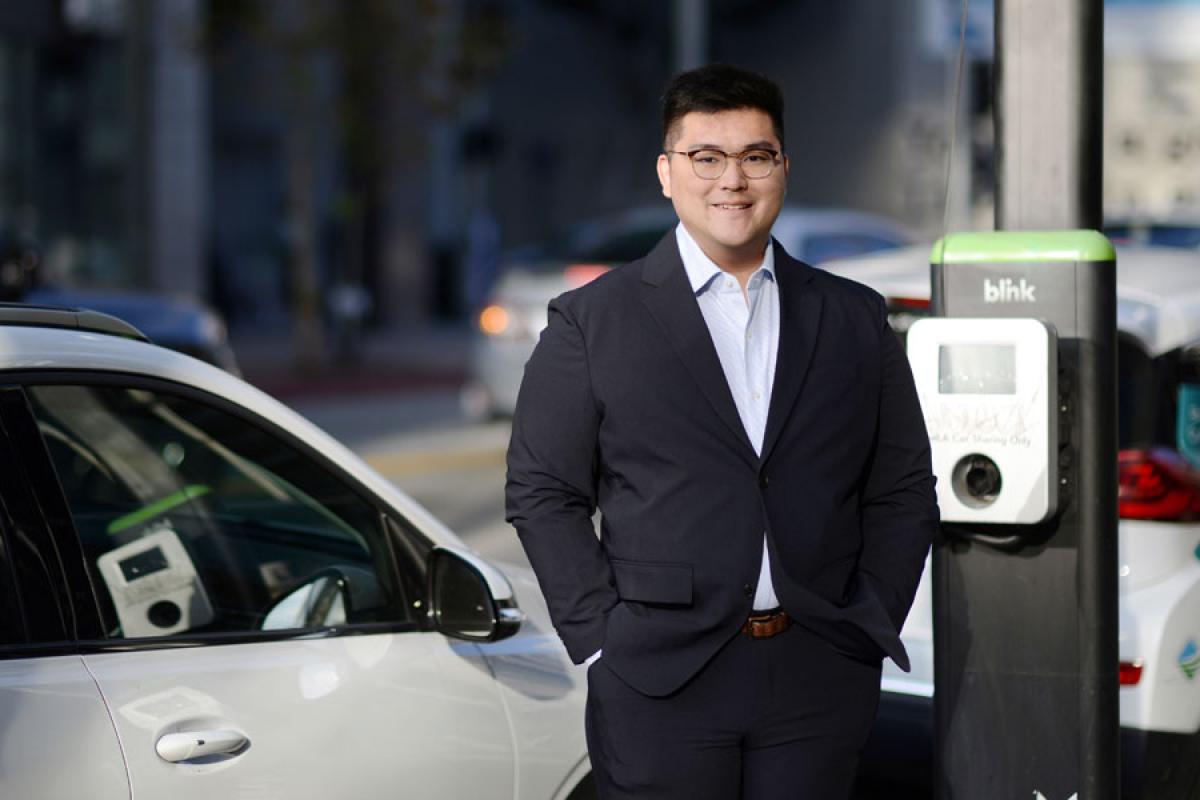The federal government’s plan to combat climate change largely hinges on phasing out gas powered vehicles – with transportation making up the largest source of U.S. climate emissions.
But even if the Biden Administration can successfully encourage automakers to build more electric vehicles (EVs), there’s still the question of whether Americans will buy them. The average purchase price for EVs was roughly $53,500 in 2023 – according to Kelley Blue Book – a price tag that’s too expensive for many consumers.
Enter Dylan Qichen Di, a Master of Urban Planning student from the USC Sol Price School of Public Policy. He has a big idea to solve the electric car cost problem: mini EVs.
The compact cars – comparable to the size of a golf cart – have lower sales prices and can be charged at home, making them an affordable option to improve EV adoption, according to a study Di conducted.
“We don’t want to have traditional gas-powered cars, but we don’t have enough cheap, accessible EV models,” Di said. “If our current technologies are not strong enough to support large-scale cars at a lower price, then maybe it’s time for us to think about smaller cars.”
